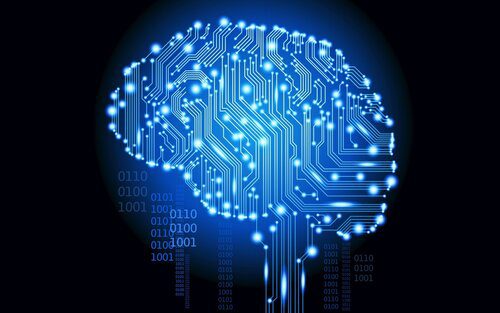
































The Institute for AI and Beyond, based at The University of Tokyo, is at the forefront of groundbreaking research in various fields, including neuroscience. One notable researcher, Yoshiho Ikeuchi, has developed an innovative method for constructing miniature models of brain circuits using neural tissue cultivated in the laboratory. By growing neural organoids, derived from human stem cells, in silicon rubber molds, Ikeuchi and his team have successfully replicated the intricate architecture of complex brain circuitry.
These miniature brain models exist within a closed-loop system with AI. The AI sends signals to one organoid via an electrode array, while simultaneously recording and analyzing the response received from the other organoid. This setup allows researchers like Ikeuchi to exert precise control over the stimulus and thoroughly examine output that would typically be too intricate to comprehend. This synergy between AI and biology has the potential to revolutionize our understanding of neural function and its connection to AI technology.
The establishment of the Institute for AI and Beyond in May 2020, a collaborative effort between The University of Tokyo and SoftBank, has rapidly become a hub of excellence and innovation. The institute aims to foster a dynamic exchange between AI research and industry, supporting medium- and long-term research projects exploring all aspects of AI, including its societal impact and research horizons. Additionally, the institute supports practical research projects known as high-cycle projects, with the objective of establishing AI companies within a few years, ultimately creating a thriving business ecosystem involving The University of Tokyo, SoftBank, and affiliated companies.
The faculty at the institute is a reflection of AI's versatile evolution and its ability to influence various realms of society and diverse research fields. In addition to neuroscientists like Ikeuchi, the institute is home to engineers, astrophysicists, experts in quantum mechanics, as well as social historians.
Eiji Saitoh, a physicist at the institute, has undertaken research in quantum mechanics. Recognizing the challenges posed by the complexities of the subatomic world, Saitoh believes that AI holds tremendous potential in helping us decipher the quantum realm. Saitoh's work focuses on the utilization of AI to analyze interference patterns caused by small structural defects in nano-metals like copper or aluminum to identify patterns and establish what he calls a "quantum fingerprint." These insights derived from AI analysis not only enhance our understanding of quantum mechanics but also have practical applications in the development of advanced quantum computers. Saitoh envisions a future where human reasoning combined with AI advances could lead to the formulation of a new physics that brings together subatomic and ordinary worlds.
While the research conducted at the Institute for AI and Beyond possesses practical applications, it also fosters an environment that encourages exploration beyond commercial interests. Researchers such as Saitoh and Ikeuchi have had their research horizons expanded significantly and have been provided with the freedom to pursue unexpected directions. Saitoh, with the support of the Institute, hopes not only to transform the way we understand physics but also to push the limits of AI itself.
Yuko Itatsu, a social and cultural historian leading the humanities and social science project at the institute, aims to analyze the societal impact of AI as well as the responsible use of this technology. She recognizes the glamorous perception of AI in Japan and seeks to develop a more realistic understanding of the technology by engaging with colleagues at the institute. Itatsu's research focuses on monitoring and addressing potential social issues and inequalities exacerbated by AI technology, such as racial biases in face-recognition and surveillance systems. She is also concerned about the lack of gender diversity within the AI research community and believes it is essential to track the potential impact of this skewed representation. Itatsu seeks to foster interdisciplinary dialogue between researchers in media studies, history, cultural anthropology, linguistics, and science to ensure a well-rounded understanding of AI's cultural context and to advocate for responsible AI use.
In summary, the Institute for AI and Beyond at The University of Tokyo is conducting pioneering research in neuroscience and AI. Researchers are pushing the boundaries of our understanding of neural functioning by developing miniature brain models and their integration with AI technology. The interdisciplinary nature of the institute enables collaborations between neuroscientists, physicists, engineers, and social historians. Their collective efforts aim to explore AI's impact on society, advance our knowledge of quantum mechanics, and ensure the responsible use of AI in an increasingly complex and diverse world.
Read more in Nature
 Tags quentes :
Inteligência artificial
Abordagens interdisciplinares
Tags quentes :
Inteligência artificial
Abordagens interdisciplinares